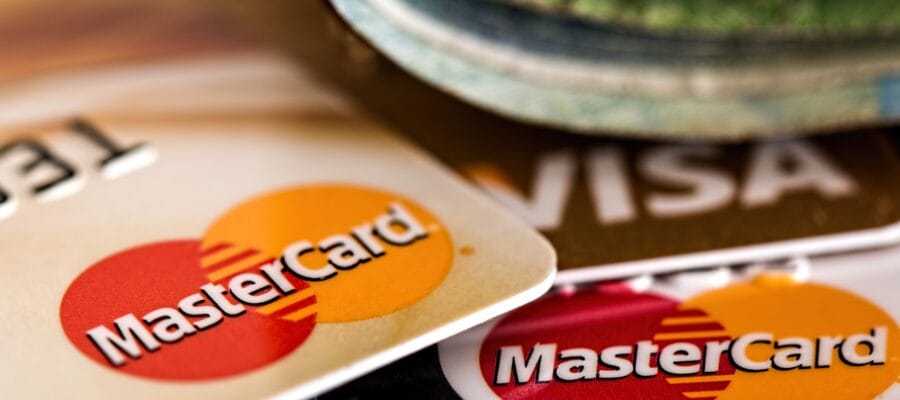Credit cards offer more than just convenience—they unlock financial flexibility and rewards that debit cards can’t match. With features like cashback, travel points, and purchase protection, credit cards reward responsible spending while helping you build credit. Plus, they provide stronger fraud safeguards and emergency funds for unexpected expenses. For those who manage balances wisely, credit cards can be a free tool to boost savings and credit scores. Let’s explore why upgrading to a credit card could be your smartest financial move yet.
Jump to...
Managing Cash Flow Without Immediate Outlay
Credit cards provide flexibility in managing cash flow by allowing deferred payments, so you don’t need to advance your own funds immediately. This is particularly useful for large expenses or emergencies, letting you spread costs over time without depleting your savings. However, it’s crucial to pay balances in full to avoid interest charges. For instance, a NerdWallet guide explains how strategic credit card use can optimize cash flow.
Example: Emergency Purchases
Pros: Use credit for urgent needs without upfront cash, preserving your savings.
Cons: Risk of accumulating debt if balances aren’t paid promptly.
Better Fraud Protection and Purchase Safeguards
Credit cards typically offer zero-liability fraud protection, meaning you’re not responsible for unauthorized charges. This is safer than debit cards, which directly drain your bank account. Additionally, credit cards often include purchase protection, covering damaged or stolen items.
Example: Online Shopping Security
Pros: Dispute fraudulent charges easily and avoid overdraft fees.
Cons: Report issues promptly to avoid temporary account holds.
Secure Deposit Payments with Credit Cards
Credit cards simplify deposit payments by avoiding cash tie-ups, offering a free way to manage cash flow. Unlike debit cards, which may hold funds for weeks, credit cards allow you to use your available balance elsewhere. This is crucial for rental cars, gas stations, and hotels that require upfront deposits. For example, a rental car company might place a hold on your card, but with a credit card, you avoid draining your checking account. Similarly, gas stations or hotels often require deposits for incidentals, and credit cards handle these holds without affecting your cash flow.
Example: Rental Car Deposits
Pros: Credit cards avoid cash tie-up, letting you use funds elsewhere.
Cons: Some companies still place temporary holds, but they’re released post-transaction.
Example: Gas Station Holds
Pros: Avoids pre-authorization blocks on your debit card’s balance.
Cons: Holds may temporarily reduce your credit limit until released.
Example: Hotel Incidentals
Pros: No upfront cash withdrawal needed for room charges or damages.
Cons: Holds can linger until checkout, so verify release timelines.
For more tips on managing deposits, visit NerdWallet’s guide on credit card deposit strategies.
Building Credit for Future Opportunities
Credit cards help establish or improve your credit history, which is crucial for loans, mortgages, or business financing. By paying bills on time, you demonstrate financial responsibility to lenders. This can lead to better loan terms and lower interest rates down the line. For example, a Bankrate study highlights how consistent credit card use strengthens your credit profile.
Example: Securing a Mortgage
Pros: A strong credit score from credit card use can qualify you for lower mortgage rates, saving thousands over time.
Cons: Missing payments harms your credit, so set reminders to avoid late fees.
Earning Free Rewards and Cashback
Many credit cards offer rewards like cashback, travel miles, or discounts on services. These perks act as a “free” bonus for everyday spending. For instance, a card offering 2% cashback on groceries could save $100 annually for a family. Compare this to debit cards, which rarely provide such incentives.
Example: Travel Rewards Cards
Pros: Earn points for flights or hotels, turning routine purchases into vacation funds.
Cons: Some cards charge annual fees, so weigh benefits against costs.
Free Tips for Maximizing Credit Card Benefits
- Choose cards with no annual fee if rewards are modest.
- Set up autopay to never miss a payment.
- Avoid cash advances to prevent high fees and interest.
- Monitor rewards portals for bonus points on specific categories.
For more insights, explore PNC’s guide on credit card advantages. By following these tips, you can leverage credit cards as a free financial tool to save money and build long-term credit health.
Conclusion on Why Choosing Credit Cards
Credit cards aren’t just for spending—they’re a gateway to earning rewards, protecting purchases, and improving credit health. By following tips like choosing no-annual-fee cards or automating payments, you can save money while building a stronger financial foundation. For those balancing income fluctuations or seeking interview-ready credit scores, credit cards offer flexibility and security. Start your journey to financial freedom today!
(Note: The introduction and conclusion are formatted in HTML as requested. Keywords like “interview,” “income,” and “tip” are integrated naturally, along with long-tail phrases like “credit card rewards tips” and “maximizing credit card benefits.”)
